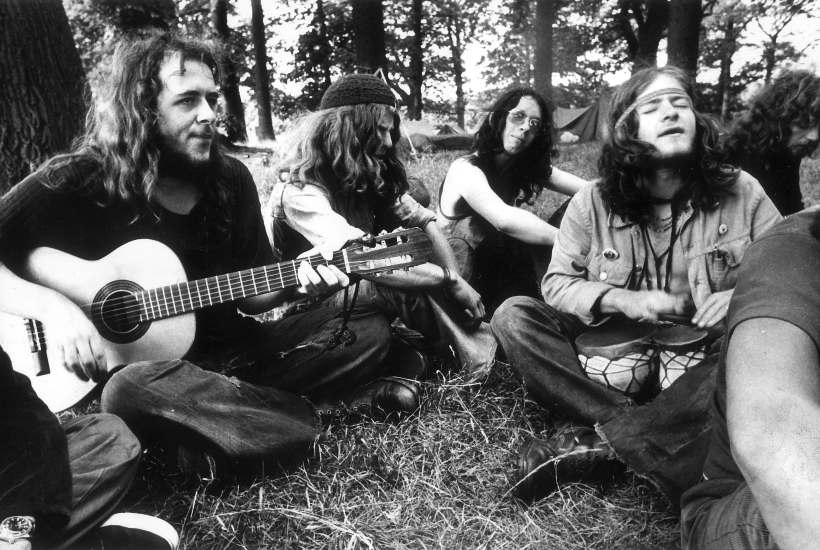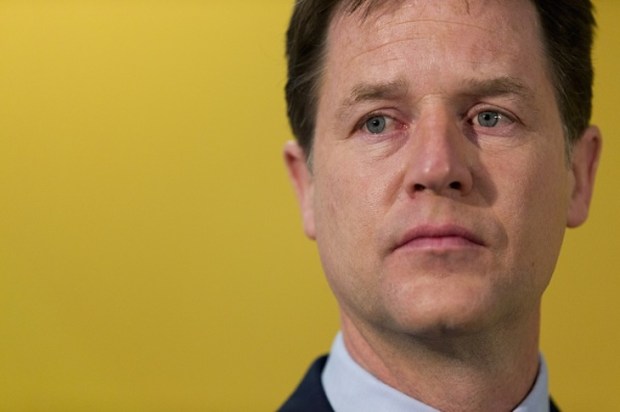Whenever I return to my old university, I am always struck by how incredibly focused, purposeful and studious everyone seems to be. It fills me with despair.
It’s hard to tell the difference between a university and a business school nowadays. Where are all the hippies, the potheads and the commies? And why is everyone so intently serious and sober all the time? ‘Oh, it’s simple,’ a friend explained. ‘If you don’t get a 2:1 or a first nowadays, employers won’t look at your CV.’
So, as a keen game-theorist, I struck on an idea. Recruiting next year’s graduate intake for Ogilvy would be easy. We could simply place ads in student newpapers: ‘Headed for a 2:2 or a third? Finish your joint and come and work for us.’
Let me explain. I have asked around, and nobody has any evidence to suggest that, for any given university, recruits with first-class degrees turn into better employees than those with thirds (if anything the correlation operates in reverse). There are some specialised fields which may demand spectacular mathematical ability, say, but these are relatively few.
So my game theoretic instincts suggest that if we confine our recruitment efforts to people in the lower half of the degree ladder we shall have an exclusive appeal to a large body of people no less valuable than anyone else. And such people will be far more loyal hires, since we won’t be competing for their attention with deep-pocketed pimps in investment banking.
The logic is inarguable: the best people to hire (or date) are those undervalued by the market. (An expat friend of mine always dated Brooklyn girls for this reason: their accent seemed exotically alluring to him but was repellent to most New Yorkers.)
This approach will be familiar to readers of the book Moneyball, which records the story of the baseball manager Billy Beane. Given evidence showing that the metrics historically used to determine the value of a player did not best correspond to his value on the field, Beane made a series of hires which turned the cash-strapped Oakland Athletics into a surprise success.
So, in the absence of any evidence that degree-class is a predictor of value, why don’t businesses follow Moneyball and hire more inventively?
Well, you need to whittle down applications somehow. And to create a spurious veneer of objectivity, recruiters all fall back on the same, lone quantifiable measure (degree class) even without evidence to support it. Tolerable if you are the only person adopting this policy: idiocy when everyone else does. In the words of F.A. von Hayek (praise be upon him) ‘Often that is treated as important which happens to be accessible to measurement.’
If you recruit only using a single measure, your pool of talent becomes dangerously homogeneous (in 24 years in the advertising industry, the most impressive people I have met range from beard-stroking Oxbridge intellectuals to people who started their careers in the mailroom). It also leads to insane, competitive credentialism, where signalling your qualities to employers requires so much work that only obsessive weirdos or the already privileged can make the grade.
The escalation in demand for internships is just another manifestation of this credentialist arms-race. That’s why I am planning to offer an exclusive service to Spectator readers from 2015. Send me a litre of Tanqueray and I’ll happily confirm that your son or daughter performed a magnificent four-week internship with me. Meanwhile your kids can all go off to Goa and spend the summer smoking drugs on the beach as God intended. Nobody will be any the wiser — and nobody will be any worse off.
Got something to add? Join the discussion and comment below.
Get 10 issues for just $10
Subscribe to The Spectator Australia today for the next 10 magazine issues, plus full online access, for just $10.















Comments
Don't miss out
Join the conversation with other Spectator Australia readers. Subscribe to leave a comment.
SUBSCRIBEAlready a subscriber? Log in